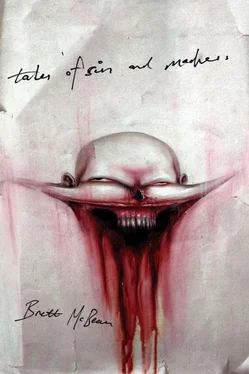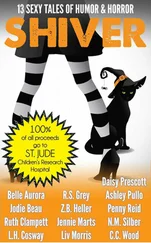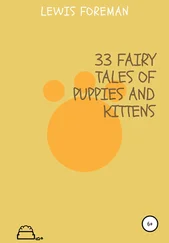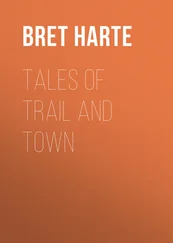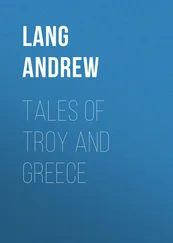An inordinately quiet kid who likes to snap the necks of cats and then see what their insides look like .
As Bobby got older, things got progressively worse. He remained socially awkward, an outcast, without friends (not that he seemed to care). But the real concern started when he took to lighting fires in the backyard, and the startling number of dead birds and other small creatures he left lying about, usually with their heads pulled clean off.
George had wanted to believe these were just the actions of a normal pre-teen boy.
Is that another beheaded bird lying in the grass? Chalk up another casualty in Bobby Fisher’s war on all things avian. Another small, but potentially hazardous fire in the backyard? Oh well, boys will be boys.
But George knew the signs. If he wasn’t so heavily into reading true crime books, in particular the ones written by the FBI guys, he wouldn’t have picked up on them. He would’ve just smacked the kid, told him not to do those things again, and that would’ve been the extent of his involvement in the matter.
The cat was the final straw. After discovering his son playing with Mojo’s intestines in the backyard after dinner, he had to face up to the truth. And in doing so, he knew he had to do something to stop Bobby from going down the same murderous path as his uncle. The first thing that came to mind was the old smoke-till-they-choke routine.
George’s parents had forced him to smoke until he puked when they caught him sucking on a cigarette when he was around Bobby’s age, hoping against all hope that by doing so it would put him off the habit for life. And it worked — for about six months. He started up again (the first couple of times he lit up his stomach had revolted, but that soon went away) and had been smoking ever since.
Would a similar experiment result in a similar outcome for Bobby?
George hoped the more extreme situation would elicit a more extreme — and permanent — result, but Christ, he still couldn’t stop himself from wondering whether or not he was doing the right thing by his son.
They passed mound after mound of rubbish, the smell of things rotten and burnt thick and growing stronger. Finally, rounding a large pile of trash containing mostly rubbish bags and stacks of white-goods, George saw it.
He knew straight away he had found what he’d come for.
“Over there,” George said, pointing to ten or so holes in the ground. Most were wide enough to fit a large bull.
Bobby looked up. He frowned. “Are we throwing Mojo in one of them?”
George nodded.
“Is that why we came out here?” Bobby didn’t sound too impressed.
“That’s one reason.”
And though that was true, getting rid of Mojo was more of a happy convenience than the actual reason George had made his son hike for miles at night to reach Edmund’s rubbish tip.
Now he had seen how Edmund destroyed the evidence of his secret work, it was better than George had expected. Mojo would find a nice home in one of those pits.
“Why didn’t we just dig a hole in the backyard?” Bobby asked.
“I’ll show you,” George said. Palms sweaty, nerves twisting in his body, George walked over to one of the pits. The stench of death grew overpowering as he neared.
Standing at the edge of the pit, he gazed in. He first noticed the useless bits and pieces of cattle that Edmund collected from the slaughterhouse, some were stripped of flesh, others still retained scraggy bits of hair; all were unrecognisable as parts of an animal. Then his eyes focused on the rubbish bags underneath the sprinkling of animal off-cuts. It was these that interested George.
“It’s just more rubbish,” Bobby said, coming up beside his father.
George swallowed. His mouth was as dry as the soil they were standing on. “That’s not just any rubbish , son.”
In a small voice, Bobby said, “What do you mean?”
George turned to his son. “There are dead bodies in those bin bags.”
Bobby’s mouth popped open and his eyes widened. “For real?”
George nodded. “These pits are full of bodies, left here to rot among the animal carcasses.”
Although “left to rot” was just an expression in this case. George knew for a fact that Edmund burnt the contents of the pits. Working at the slaughterhouse, it was common to see thick, putrid black smoke drifting from the tip (“Looks like old Edmund is smoking his cigars again,” the men would often joke). The blackened ground around the pits was further proof of Edmund’s particular method of waste disposal.
“Where did the bodies come from?” Bobby said, expression still fixed with awe. “Are they Ed’s?”
“Well, not exactly,” George said.
Edmund Mullroy wasn’t your average garbage man. His job of collecting the town’s rubbish once a week, along with the slaughterhouse’s, was his bread and butter, his legitimate work. But Edmund was also involved in more sinister activities.
He collected — and disposed of — dead bodies. The victims of the many serial killers living in the nearby city, and the one lone murderer in town: Tony Fisher.
The killers would call Edmund any time, day or night (usually night) and then he would go to their homes, or some other designated drop-off location, and pick up the rubbish bags containing body parts or, in the case of the slightly squeamish, whole bodies. Then he would take the bodies back to his rubbish tip, where they would be destroyed, no questions asked. Because as long as the means was legal, it was Edmund’s right to destroy the rubbish as he saw fit. So no one batted an eye whenever Edmund lit his fires. They just didn’t realise what else was being destroyed along with the slaughterhouse refuse.
George wasn’t sure of the exact figure, but from talking with Tony, George estimated Edmund serviced close to a hundred killers in the nearby city, those who realised that disposing of bodies the old fashioned way, à la John Wayne Gacy, was too risky and always led to being caught.
George didn’t approve of his brother’s killer ways, but he wasn’t about to turn Tony over to the cops. This was his brother he was talking about, his own flesh and blood.Tony had practically raised George after their mother died when George was eight and his father sunk deeper into the bottle. Still, he’d had many long talks with his brother about why he felt the need to kill people; had even begged him to stop, but like a gambling or drug addict, he couldn’t, despite promises he would.
So George kept quiet about his brother’s nefarious activities. But really, what the fuck business was it of his, anyway? People would always kill one another — it was the human way. What would locking up one more achieve in the grand scheme of things?
George figured Edmund must have a similar philosophy — why else would he have agreed to help Tony (as well as all the other killers) when Tony approached him during a routine collection at the slaughterhouse seven years ago? But after what George had heard — or thought he had heard — tonight, maybe Edmund had a more personal reason to help out Tony and the rest of the murderers.
George learned of the arrangement some time later when Tony spilled his guts one night after they had emptied a bottle of J&B. How Edmund would come and collect Tony’s “dirty laundry” (the code word for a dead body) in exchange for a small cash payment. For that little extra money, the murderer would be alleviated from the hassles of getting rid of the body, as well as have peace of mind that the evidence would be destroyed.
George had to admit, as gruesome as the whole business was, it seemed like a good deal.
Apparently Tony had heard about Edmund’s business through “friends” and thought it a great idea. According to George’s brother, Edmund had been running his successful side venture for close to thirty years, and as far as George knew, the cops had no idea what was going on.
Читать дальше
